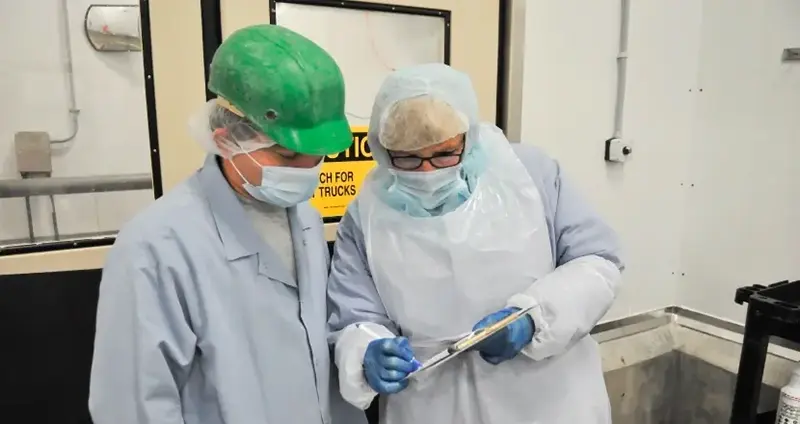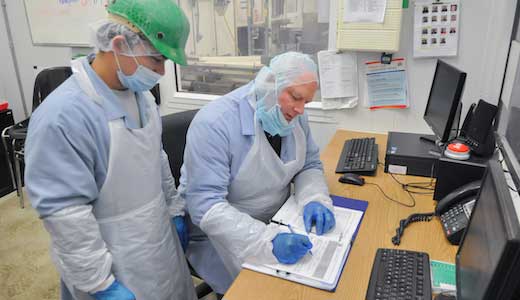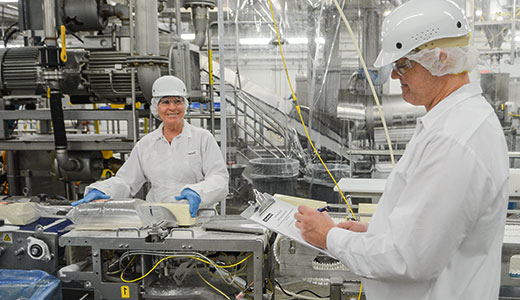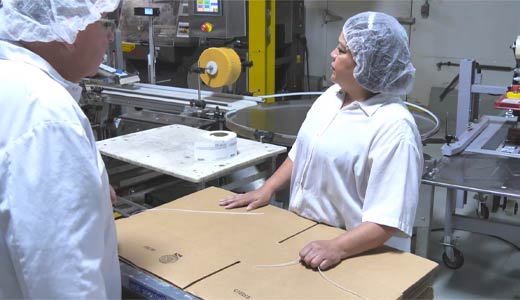Posted by Zosi Learning

The Food Safety Modernization Act (FSMA) includes the Intentional Adulteration (IA) Rule, which emphasizes the importance of a Food Defense Qualified Individual (FDQI) in protecting the food supply chain from intentional contamination. Unlike Preventive Controls Qualified Individuals (PCQI), FDQIs focus on threats related to intentional adulteration, a unique and vital aspect of food defense.
Maintaining an FDQI is crucial for ensuring FSMA compliance, and it requires proper training, regular updates to knowledge, and a team-oriented approach. This blog explores the role of an FDQI, the training required, and the long-term benefits of maintaining a well-prepared FDQI team. Additionally, we’ll outline how FDQI training requirements and food defense plan development are essential components of this process.
Watch: How to Maintain a FDQI for FSMA Compliance
The Role of a Food Defense Qualified Individual (FDQI)
Key Responsibilities
FDQIs are integral to food defense programs, handling tasks that ensure compliance with FSMA’s Intentional Adulteration Rule. Their responsibilities include:
- Preparing the Food Defense Plan: Developing a comprehensive plan that outlines potential threats and mitigation strategies.
- Conducting Vulnerability Assessments: Identifying areas within the food production process susceptible to intentional adulteration.
- Developing Mitigation Strategies: Implementing measures to reduce risks and protect public health.
- Reanalyzing the Food Defense Plan: Regularly updating the plan to address evolving threats or changes in operations.
Clarifying the FDQI’s Unique Role
Unlike food safety measures, which focus on unintentional contamination, food defense addresses deliberate threats. This distinction highlights the critical need for specialized expertise and focused strategies, which are developed and refined through rigorous FDQI training requirements.
For a deeper understanding of the roles involved in food defense, visit our Food Defense Roles blog.
Training Requirements for FDQI Competency
FDA Standardized Curriculum
The FDA provides an online training curriculum designed to build foundational skills in key activity types and mitigation strategies for FDQIs. These resources are an excellent starting point for understanding compliance requirements.
Zosi Learning’s Food Defense Manager Course
Alchemy’s Food Defense Manager Course offers an equivalent to FDA’s training while covering all FDQI responsibilities in greater depth. Developed in collaboration with the Food Protection and Defense Institute (FPDI), this course ensures industry-leading content.
Intentional Adulteration Vulnerability Assessment Training (IAVA)
For advanced skills, the FPDI offers IAVA training, focusing on in-depth vulnerability assessments. Completing the Food Defense Manager course can often qualify participants for discounts on this advanced training.
The Importance of Ongoing Training
FDQI training requirements don’t stop with initial certification. Regular updates and continued education are essential to stay aligned with evolving threats and regulatory standards. Consistent training ensures that FDQIs remain effective in developing and maintaining food defense plans.
Explore these training options further at Zosi Learning’s Food Defense Online Training.
Building a Team of Food Defense Qualified Individuals
Advantages of a Team Approach
Maintaining a team of FDQIs rather than relying on a single individual offers significant benefits:
- Continuity: Ensures coverage during vacations, leaves, or staff turnover.
- Diverse Perspectives: Brings varied expertise and insights to managing food defense plans.
Enhancing Organizational Resilience
A team approach not only supports FSMA compliance but also ensures consistent readiness for plan reanalysis. This resilience strengthens your organization’s ability to adapt to changes and maintain food defense plan maintenance. Developing a well-rounded team aids in ensuring seamless food defense plan development and execution.
Long-Term Benefits of Proper FDQI Training and Maintenance
Maintaining FSMA Compliance
Trained FDQIs play a critical role in ensuring adherence to regulatory requirements. By staying up-to-date with the latest practices, they help organizations meet FSMA compliance standards.
Strengthening Food Defense Programs
FDQIs enhance organizational preparedness for intentional adulteration threats, ensuring robust mitigation strategies are in place. Proper food defense plan development ensures that mitigation efforts are both proactive and adaptive.
Consistency and Knowledge Retention
A well-trained FDQI team ensures continuity of expertise, even as personnel changes occur, preserving institutional knowledge and maintaining a strong food defense program.
For templates and resources to support FSMA compliance, explore our FDA Compliance Template package.
Conclusion
The Food Defense Qualified Individual is at the heart of FSMA compliance, ensuring that intentional adulteration risks are identified and mitigated effectively. By investing in proper FDQI training and maintaining a resilient team, organizations can protect public health, strengthen food defense strategies, and adapt to evolving challenges. Meeting FDQI training requirements and focusing on effective food defense plan development are critical steps in achieving these goals.
Take the next step by exploring Zosi Learning’s Food Defense Manager Course or Food Defense Supervisor Course. Equip your team with the knowledge and tools needed to lead your organization’s food defense efforts with confidence.



 Food Defense Manager
Food Defense Manager
 Food Defense Supervisor Awareness
Food Defense Supervisor Awareness
 Food Defense in 15
Food Defense in 15

